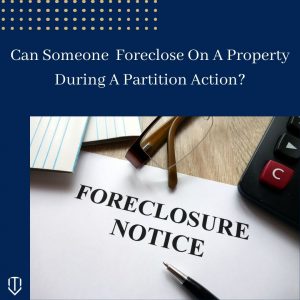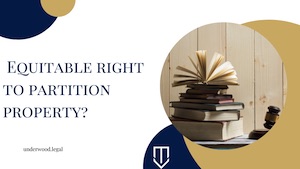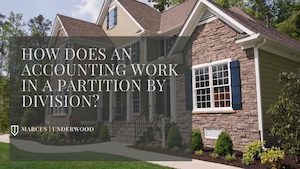 While the brief answer is “yes,” the issue is a bit complicated, like many things in the real estate litigation world.
While the brief answer is “yes,” the issue is a bit complicated, like many things in the real estate litigation world.
Who is a proper party to a partition action?
Generally, any person claiming an interest in a piece of real estate must be joined in the action in order to fully settle all issues with respect to that property. If a person is not joined, then the court case is not binding, or res judicata, with respect to that person. As such, a partition action includes not only all title owners but also any companies claiming a mortgage interest.
 California Partition Law Blog
California Partition Law Blog










